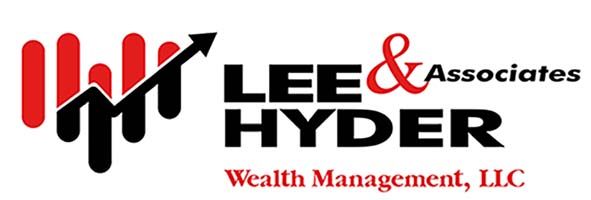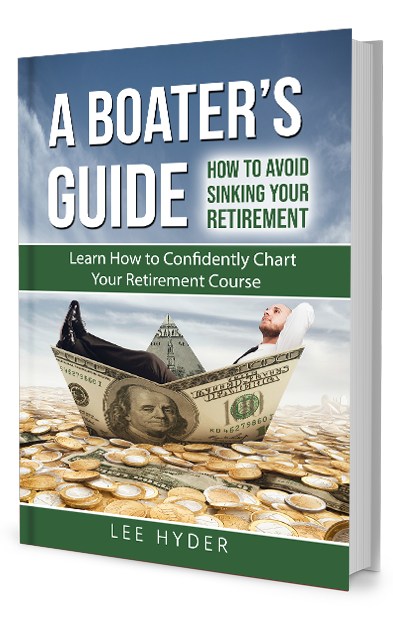If you’re here, you have a question on the top of your mind — What do I need to do to protect myself and my loved ones during my retirement years?
All other concerns always seem to return to that. What investments should I have? Do I need a financial advisor? What is a financial advisor? How do I find a fiduciary financial advisor near me? Are there any financial advisors in my area? What does it mean to be a fiduciary? How do I understand my financial settlement? How do I plan for medical emergencies? When do I take Social Security? Will my spouse be okay if I pass away early?
These are the kinds of questions we get often from families we meet with.
If you’ve had any of these questions and are looking to find a financial advisor who’s right for you, you’ve come to the right place. We’ve designed this website with two purposes in mind.
- To serve as a resource for research when choosing a financial advisor. As a shrewd investor and someone who has worked their entire life planning for retirement, you don’t want to just take my word for it. I understand.
- To explain why working with a financial advisor who is a fiduciary may benefit you and whether there is a measurable benefit if we work together.
We work with several different types of clients, but they all share a desire to feel secure in their financial plan. We specialize in three solutions to this problem.
Love Local? Get a Professional Financial Plan From a Fiduciary Financial Advisor in Akron
Whether you’re from the Rubber Capitol of the World or anywhere else in the world, our office can serve you as your trusted financial advisor.
Many assume financial planning is just about investment management. But a true fiduciary will help you look at your entire financial picture. That’s why our client service package contains 6 key areas.
- IRA and 401k Planning: Your Individual Retirement Account (IRA) or 401k is the cornerstone to your financial success. We will help you understand the most appropriate investment strategy for your financial goals and make sure that the asset allocation is sound — are you properly allocated in cash, bonds, a mutual fund, ETFs (Exchange-Traded Fund), index fund, cryptoassets or other investment options? How can you navigate these asset classes to make sure your retirement goals stay in focus? Are you utilizing the tax strategies to make the most of your investments while also avoiding any unnecessary fees and any penalties due to the ever changing tax minefield?
- Estate Planning: As a holistic, fiduciary financial planner, I know that leaving a legacy to your loved ones might be a part of your life goals. We work with your estate attorney to establish strategies that will serve as asset protection for your family when you’re gone.
- Tax Reduction: All investment choices come with tax consequences. We help you navigate the rules on retirement savings and investments to make sure you maximize what you keep.
- Wealth Management and Retirement Planning: Our approach as a wealth manager and financial planner isn’t one of “Do as I say.” We value our client relationships and offer investment advice geared towards your specific situation. But you don’t have to take my word for it — and you shouldn’t! Explore our library to understand our fiduciary philosophy and send over a complimentary consultation request whenever you’d like to meet — free to you.
- Insurance Services: An investment plan is more than what you put in the stock market. It also includes an investment in yourself and avoiding future financial losses: unfortunate death, injury, disability, or illness that could cost you and your family hundreds of thousands of dollars and your quality of life. We consider your situation as part of our planning services and discuss understanding Medicare, and whether a life insurance policy would be a smart choice for asset protection, and other common questions.
- Navigating Transition: Retiring, losing a job, death, or leaving a marriage is hard. But we help you develop your investment philosophy on track so that you can avoid dangerous mistakes.
Don’t Go it Alone: Professional Financial Insight on How to Protect Assets from Divorce
It isn’t a comfortable topic, but it’s true: overall divorce rates are decreasing except among Boomers — the people prime for retirement.
Nobody gets married planning for a divorce.
But once that decision has been made and the divorce proceedings are finished, there are many other questions: what will happen to my retirement account, my Social Security benefits, my personal finance? “Our” retirement plan has suddenly been broken in two.
Your family law attorney helps with the divorce process, but who can help you with your investment strategy after settlement so it can last the rest of your life? Who can you turn to that will be there to help you make these huge and impactful decisions after your divorce?
This type of counseling is another area that we focus on as a fiduciary financial advisor. Financial planners can walk you through your financial choices — even if you’re used to being the spouse who didn’t deal with these decisions in the past.
I invite you to download my resource on investment management for your settlement. We also have resources just for you so you have the necessary knowledge to navigate this whirlwind change.
Still in Your Peak Earning Years? Get the Most From Your 401k With Professional Financial Support
Gone are the days of being able to rely on pensions or Social Security or even your employer to carry out your retirement plans.
Many employees no longer have a pension and it’s up to you to properly fund your 401k. Do you know if your 401k has an SDBA, which stands for Self-Directed Brokerage Account and also referred to as a broker link?
What the heck is that?
401k’s, 403b’s, and the like are retirement accounts offered through your employment. Many of these plans have very limited investment options. But some plans with the SDBA options allow participants to “self-direct” parts of their 401k to significantly more investment options than they currently may have.
Not every Registered Investment Advisor (RIA) can work with SDBAs, and most people don’t even know what it is or if their company’s 401k plan allows this.
Many people also have recently lost their job or changed careers since COVID-19. You need to understand why leaving your 401k with your previous employer may not be in your best interest…and bigger yet understand why moving it to your new employer may benefit your new employer more than you.
If you’re not sure whether your 401k plan has any of these SDBA options through your employee benefits, you’ll benefit from a quick, no obligation phone call or meeting with our financial advisor.
Unsure Where to Start? Explore the FREE Professional Financial eBooks and Resources Below
Simply click on one (or all) of the books below in the submenu to learn more and to download your digital copy now!
Or Explore Our Digital Educational Series
Now’s the Time For Your Professional Financial Consultation With Lee Hyder
With over 32 years of industry experience, we at Lee Hyder & Associates have walked alongside hundreds of families worried about their retirement, including professionals, business owners, and divorcees.
I’ve seen many families uncertain about their financial plan. That’s why I say, doesn’t your financial future deserve a second opinion?
If you’ve said, “Yes, my financial future does deserve a second opinion,” our office is open to you. We also serve clients virtually and have a track record of strong client relationships.
Go ahead, browse through our resources, and find our contact information. Or schedule now to book a quick phone call, Zoom, or in-person meeting. We can’t help everyone, but we may be able to help you achieve more peace of mind about your financial future and retirement. If you’ve made it this far, we look forward to talking with you. Here’s my calendar booking page for an income & retirement strategy call.
FAQ: Still have questions on your mind? Here’s some of our frequently asked questions…
Remember, the answers should not be construed as financial advice for you! Your financial plan depends upon your personal situation and should be developed with personal financial advisors!
1. What makes Lee Hyder & Associates different as a financial advisor?
First of all, we serve you as a fiduciary financial advisor, meaning that we are legally obligated to work in your best interest. To that end, we pride ourselves on teaching our clients the why behind the ups and downs of their portfolio. This education helps clients be realistic about their risk tolerance and make rational investment decisions free from emotion. They really understand that a sudden loss doesn’t necessarily mean there’s anything wrong with their portfolio and they should make an immediate change. All portfolios go through a season: just as trees lose their leaves in the winter, but you don’t cut down the tree.
We also offer holistic professional financial services that include not only retirement planning, but also estate planning, tax planning, 401k management, and advanced insurance strategies. We are clear and upfront about our fees, which is not a flat rate fee but unique to each situation. As a fiduciary, we are legally obligated to put your situation above our self interest and can’t recommend any service or strategy for the benefit of our bottom line versus yours.
There are more answers to what makes us different in our video archive.
2. Should a retiree have their retirement account invested in the stock market?
Most people should always be invested in the market, but a retiree may need to rethink their specific market allocation. Risk tolerance and asset allocations may change as people get older. During the early years, an account is geared more towards growth. After retirement, an account is geared towards income and (possibly) legacy for loved ones.
3. I heard that a retiree should be more in bonds than stocks.
Many people think that as we get older, we should be in more bonds and less equity. But the ratio of stocks and bonds may not be as much related to your age as it is to your particular situation. If you don’t need the portfolio to cover your cost of living because you have a pension or large social security income, you can afford to have more equity in your investments.
4. Should I have a Roth IRA?
A Roth IRA differs from a traditional IRA in that traditional IRAs are tax-deferred (you pay taxes when you take money out) and Roth IRA withdrawals are tax-free, because your contribution is from already taxed income. The tax free advantage is to your and to all your beneficiaries. If you believe that taxes will rise in the future, as I do, you should look at converting some of your traditional IRAs or 401k’s to a Roth.
















